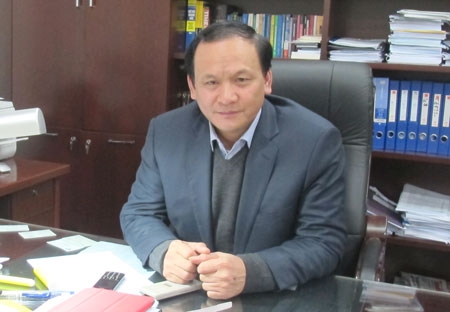.jfif) Opinion
Opinion

Nguyễn Nhật, Deputy Minister of Transport, speaks to the Thời báo Kinh tế Việt Nam (Việt Nam Economic Times) newspaper about the ministry’s resolve to create a level playing field for all aircraft carriers.
 |
Nguyễn Nhật, Deputy Minister of Transport, speaks to the Thời báo Kinh tế Việt Nam (Việt Nam Economic Times) newspaper about the ministry’s resolve to create a level playing field for all aircraft carriers.
What are your comments on the fast growth of Việt Nam’s aviation market over the last few years?
In 2015, Vietnamese airports served 67 million passengers – an increase of 12-14.5 per cent per annum.
According to the International Civil Aviation Organisation (ICAO), Việt Nam is one of seven countries in the world with the fastest development in terms of passengers and cargo.
ICAO said that with its population of 95 million people, Việt Nam has big potential for its aviation industry development, both nationally and internationally, particularly after the country becomes a member of WTO, APEC, ICAO, FTA and TPP.
As Việt Nam integrates deeper and wider internationally, the country needs to update its legal system, particularly the Law on Civil Aviation. In my opinion, the Aviation Law will facilitate conditions for domestic and international airlines to further invest in the country.
With such positive comments from ICAO, do you think Vietnamese airports will quickly develop to serve the rapid increase of air traffic from Vietnamese and international carriers?
This is an urgent and acute issue for the Ministry of Transport (MOT) to think about. To meet the rapid increase in the air traffic to and from Việt Nam, quite a few airports have been upgraded, including the Phú Quốc, Cát Bi (Hải Phòng), Nội Bài and Đà Nẵng airports.
Now, Việt Nam has 21 airports, of which seven are international airports. In the long run, I think Việt Nam will build “taxi airports” with a distance up to 300km to the nearest airport.
Nowadays, quite a few private airlines are nurturing plans to set up their own carriers to compete with “budget airlines”. What do you think about the development tendency?
Việt Nam has an “S” shape, running from north to south, with about 95 million people. So, the aviation market is a very lucrative to investors. Some private carriers have already been operating in Việt Nam. This is totally in line with the Enterprises Law and the Investment Law. A case in point is the private low-cost carrier Vietjet Air. Though it has operated for only five years, it now dominates 40 per cent of the domestic market.
Do you think the rapid growth of Vietjet Air may pose management risks?
At present, more than 90 per cent of pilots employed by Vietjet Air are foreigners. This situation requires Việt Nam to quickly train our own pilots.
The rapid growth of Vietjet Air is strong evidence that the two or three air carriers at present do not represent a big number. If a few more carriers launch services, it will create fair competition for the airline industry in the country.
Recently, the problem of delayed or cancelled flights has become rather frequent. How do you comment on such a problem?
There are various reasons for delays or cancelled flights. But the main one is the aircraft shortage. That’s why newcomers that join the market will encourage better aviation services with low prices and higher quality.
Furthermore, it will help our civil aviation industry develop more healthily.
Two new air carriers, SkyViet and Vietstar Airlines, have recently joined the market. Do you think this is a good sign?
SkyViet and Vietstar Airlines are low-cost airlines. They offer more opportunities for people to choose which airlines to use. Of course, the other carriers have to adopt their new service strategies to attract customers.
Will different treatment be given to air carriers depending on how long they have been operating?
Definitely not, whether it be a State-owned or private carrier. This has already been written into law.
From the perspective of the MOT, we will uphold our functional management to create a level playing field for all aircraft carriers. — VNS




